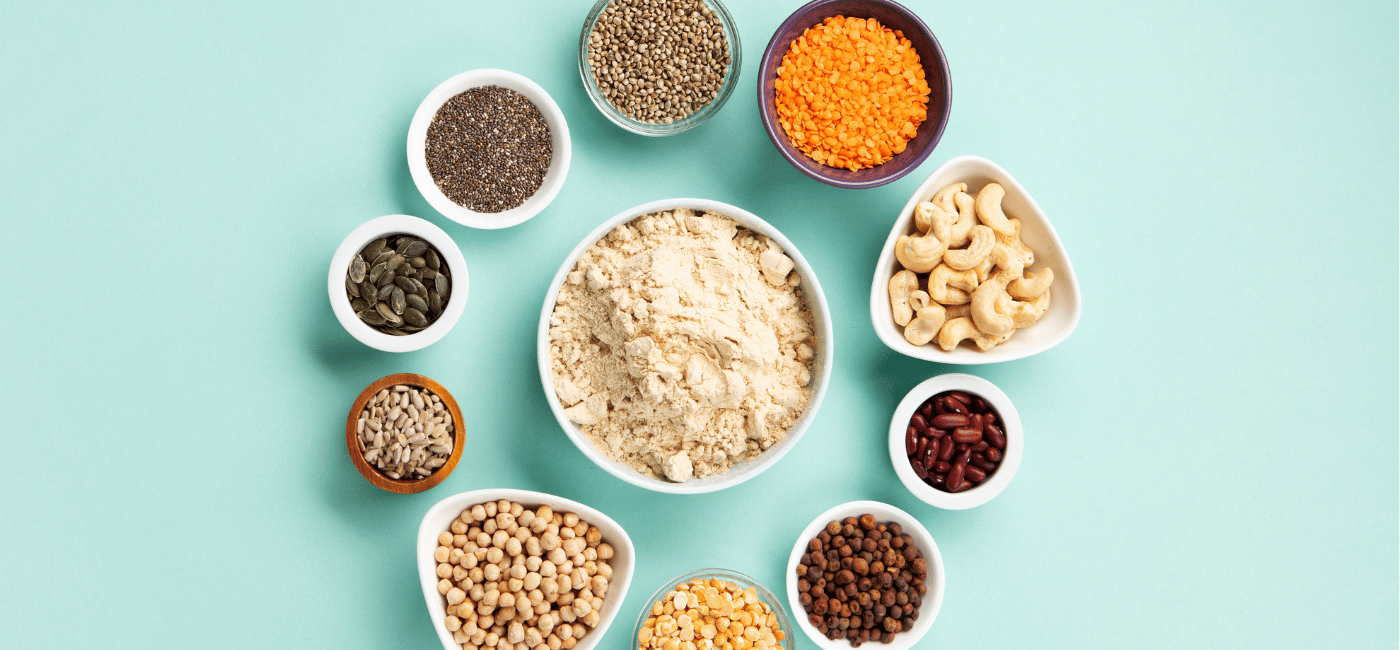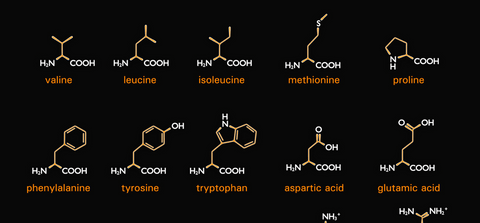

The field of nutrition is one of the most frustrating fields there is.
For every study saying one thing, there are studies saying the opposite.
Eggs. Kale. Steak. Which are good for you? Which are bad? Believe it or not, even those kale salads are debated [3,4].
It’s actually one reason that I find some solace in adaptogens and functional mushrooms, since there are centuries of use in traditional medicine to guide us. Still I think we need more large scale modern studies.
Anywhoooo, this isn’t about those ingredients.
This is about macronutrients, and specifically protein.
People swear by all sorts of diets: keto, Atkins, high protein, low protein, plant based, carnivore, mediterranean, calorie counting, etc.
Everyone has a different philosophy. I truly believe different diets and lifestyles can work for different people, but the most recent science, and the integrative and functional doctors I tend to trust believe protein intake — and specifically muscle mass and strength are critical to your long term health.
A few of my favorites to follow are Dr. Mark Hyman, Dr. Peter Attia, and nutritionist Shawn Stevenson. All of whom are guided by science, and also use a more holistic and long term approach in their practice. I can link to their podcasts at the end of this post if you're interest.
I recently read the book Outlive by Peter Attia, and although he is not keen to recommend very much from a nutritional standpoint, he does strongly recommend getting sufficient protein.
Muscle mass and protein play a critical role in:
We naturally lose muscle as we get older, requiring us to get even more protein to sustain muscle mass.
Every decade after age 30 we lose 3-8% of muscle mass, and that amount increases even more after age 60. That muscle mass keeps you strong to stay safe, active, and independent.

Protein is made up of amino acids.
Even if you’re not super into the latest protein science, you’ve probably heard about essential amino acid (EAAs), and maybe branched-chain amino acids (BCAAs).
There are 9 amino acids that are required for life and we can’t synthesize them ourselves. Those 9 essential amino acids are ones that we have to take in from our diet.
9 Essential Amino Acids:
Of these 9 amino acids, 3 are are particularly important for muscle growth.
These are known as Branched-Chain Amino Acids:
Most amino acids are metabolized by the liver, but BCAAs are mostly metabolized in the muscles [1].
You’ll often see it recommended to get BCAAs in a 2:1:1 ratio for optimal muscle growth. That’s 2 Leucine: 1 Isolucine: 1 Valine.
Ok, so how do we get the right amount of protein?
The RDA (recommended dietary allowance) of protein is set to 0.8g of protein for each kg (2.2 lbs) of body weight. This is less than 0.5g per pound of protein. [5]
Unfortunately, the RDA is set to the minimum required to avoid protein deficiency for the average sedentary adult. It is not set at a level to help you thrive.
Dr. Peter Attia recommends getting about 1g per pound of body weight. This is honestly not an easy task. [6]
It’s definitely possible to do this with a plant based diet, but it is more difficult and it’s also much more difficult to get an optimal amino acid balance.
Lately, I’ve been making protein my primary focus from a macronutrient perspective. One reason we created Pow Protein+ is to simplify this. And as usual we did it very differently than competitors.

When it comes down to it, focusing on getting adequate amounts of EAAs and BCAAs is most important. Pretty much all animal based sources of protein have an ideal amino acid profile.
Dr. Don Layman an expert in the field tends to recommend focusing specifically on 3 amino acids: leucine, lysine, and methionine. [7] We can go deeper on exactly why in another post, or I've linked to a podcast with Dr. Layman below.
That’s why the best plant based protein sources will get close to the amino acid profile of animal based sources like whey.
No single plant has an optimal amino acid profile, so the best way to achieve that is to combine multiple sources at the appropriate ratios.
Combining legume and grain based sources is one way to achieve this.
For example, in Pow Protein+ we’re combining organic pea protein with organic sprouted brown rice protein. Studies have shown that pea protein has antioxidant, antihypertensive, and anti-inflammatory properties, and may even help to lower cholesterol.
Pea protein contains a high level of many amino acids, in particular lysine and BCAAs, however, pea protein is not truly complete protein on its own, lacking adequate methionine.
On the other hand, brown rice protein is lower in lysine and BCAAs, but is very high in methionine and cystine.
That's why we've combined the two at appropriate proportions to optimize for a more optimal amount of each amino acid.
As mentioned above, every decade after age 30 we lose 3-8% of muscle mass, and that amount increases even more after age 60. This involuntary loss of muscle mass as we age is called sarcopenia and you can lose up to 50% of your muscle mass by your 70s.
Sarcopenia increases the risks of falls and vulnerability to injury. Believe it or not, in seniors, falls are the #1 cause of injury and injury related death. Keeping up muscle mass and strength is a great way to reduce this risk.
Beyond injury alone, the decrease in muscle mass leads to changes to body composition which lead to insulin resistance and has “probable implications for several conditions, including type 2 diabetes, obesity, heart disease, and osteoporosis.” [2]
Of course, you don't have to lose this muscle mass. You can do something about it. Focusing on strength training and eating enough protein is a good way to do that.
Ok, we got pretty deep into protein in this post, but there was still so much to talk about!
If you have any specific questions, drop a comment and let us know. We'll try to answer it in a future post.
For now, if you're interested I'm dropping some podcast recommendations below.
We have not yet officially launched Pow Protein+, but when we do we'll link to it here as well. Thank you!
Podcasts recommendations:
Sources
https://peterattiamd.com/donlayman
Great read, thanks for the information and education, I especially appreciate the podcast links. Can’t wait to try the new product! After trying the matcha, I trust your company!
Liz on
Great read, thanks for the information and education, I especially appreciate the podcast links. Can’t wait to try the new product! After trying the matcha, I trust your company!
Liz on